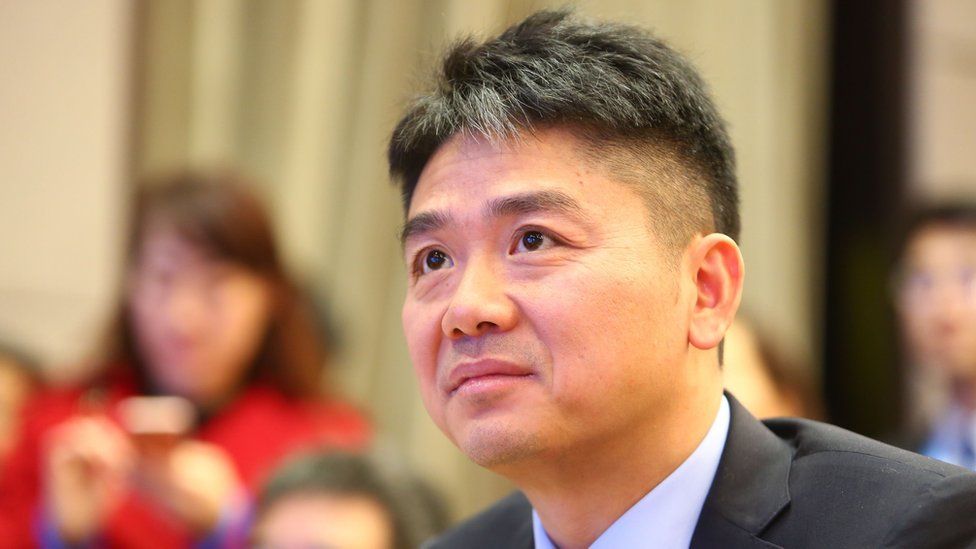ARTICLE AD BOX
By Tessa Wong
BBC News
 Image source, Getty Images
Image source, Getty Images
Richard Liu, also known as Liu Qiangdong, is the founder of one of China's biggest e-commerce companies, JD.com
It was meant to be one of the biggest MeToo trials China had ever seen, set to play out on the other side of the world in the US state of Minnesota.
The defendant was a 49-year-old billionaire who's been called the "Jeff Bezos of China". The accuser was a 25-year-old Chinese graduate student who said he sexually assaulted her.
The civil trial would play out in an open court - nearly impossible in China, but the reality in this case, as the trial would take place in Hennepin County, Minnesota, where the offence allegedly happened.
But in a stunning twist of events on the eve of their court battle, Richard Liu - better known to the Chinese as Liu Qiangdong - and Liu Jingyao have agreed on a settlement, averting trial.
The two are not related, Liu being a common Chinese surname. The BBC is naming Liu Jingyao as she has previously publicly identified herself.
A statement released on Saturday night by lawyers for both parties said the incident that took place "resulted in a misunderstanding that has consumed substantial public attention and brought profound suffering to the parties and their families".
"Today, the parties agreed to set aside their differences, and settle their legal dispute in order to avoid further pain and suffering caused by the lawsuit."
The news has surprised many in China and dominated Chinese social media, where within hours related hashtags racked up hundreds of millions of views and comments on Weibo.
Millions of Chinese were planning to closely watch the trial unfold in a legal system far more transparent than in China. Some experts believed that Liu Jingyao stood a better chance at winning in the US.
Now, with a settlement made behind closed doors, the case is likely to prompt even more speculation and add to the uncertainty of China's beleaguered MeToo movement.
Battle of narratives
Long before the trial was due to take place, the Chinese public's perception of the case was profoundly shaped by a series of video and audio clips showing some of what transpired on the night of 30 August 2018.
At the time, Liu Jingyao was studying at the University of Minnesota, and was invited to attend a networking dinner organised for Richard Liu, the well-connected founder of e-retailing giant JD.com, and other powerful Chinese executives. The two went to her apartment afterwards.
Image source, Liu vs Liu court records
Image caption,Footage filed as evidence for the now-settled case showed the two of them in a lift in Liu Jingyao's apartment block
Liu Jingyao says she was pressured to drink excessive amounts of alcohol at the dinner by Richard Liu and other guests. She says he physically forced himself on her while they were travelling in a car and she was too intoxicated to resist. He then followed her to her apartment and raped her despite her protests, she says.
Richard Liu says she was not overly intoxicated, and she willingly invited him to her place where they had consensual sex.
Immediately after the incident, Liu Jingyao told a friend what had happened, who in turn called the police. Richard Liu was arrested, which made headlines across the world. He denied wrongdoing and was released the following day.
Weeks later, following an investigation, local prosecutors declined to press charges, saying there were "profound evidentiary problems" which would make it difficult to prove the allegations.
In April 2019 Liu Jingyao filed a civil lawsuit against Richard Liu accusing him of sexual assault and claiming at least $50,000 (£44,800) in damages. The courts had ruled there was enough in her claim to proceed to civil trial, and that his company could also be found liable for some damages.
Shortly after filing her suit, video clips taken from police bodycams, surveillance cameras appeared online. They show Richard Liu and Liu Jingyao interacting outside the restaurant where they had dinner and at her apartment block, and also Liu Jingyao speaking to police shortly after the incident.
The snippets of footage came from material lodged as evidence for the case, and first surfaced via lesser known Chinese media outlets, including one that has since vanished.
Liu Jingyao's lawyers and supporters claimed the clips were leaked as part of a stealth campaign to sway public opinion before the trial. Richard Liu's lawyers have denied they did this and told the BBC the police had released material on request from media outlets.
What is certain is that the clips have had a lasting effect among the Chinese public in stoking support for Richard Liu and contempt for Liu Jingyao, who has been labelled a "gold-digger" and "slut".
On Sunday, hours after news broke of the settlement, most of the commenters on Chinese social media appeared to see it as confirmation that Liu Jingyao had sued him to get a payout. Many described him as a victim of "xiannutiao", or extortion after a sexual encounter.
A public court battle
Since launching her lawsuit, Liu Jingyao has kept a low profile as she continues to pursue her studies in linguistics.
After dropping out of university twice - so she could recover psychologically, say her lawyers - she finally completed her degree and is now enrolled in a graduate programme in Washington University in Missouri.
The incident and the public vilification has left her with permanent post-traumatic stress disorder, and she does not want to return to China as she fears repercussions from Richard Liu and others at the dinner that night, her lawyers told the BBC.
Her lawsuit alleges the dinner was attended by executives with links to the upper echelons of the Chinese Communist Party.
She initially appeared determined to press on with her case. In a 2019 interview with the New York Times, she said she would never settle as it would mean signing a non-disclosure agreement (NDA).
It is not known why Liu Jingyao agreed to a settlement now. Her lawyers did not answer the BBC's queries on her reasons nor whether she has signed an NDA.
But supporters believe that as the public court battle loomed near, the stress became too much for her to take.
Liang Xiaowen, a Chinese feminist activist, said she had texted with Liu Jingyao shortly after news broke about the settlement.
"She said she wanted to fight to the very end, but it's very difficult," Ms Liang told the BBC.
"It is a relief to her that she settled, but she feels guilty that she cannot see it to the end. She is very grateful for everyone who believed in her, and she says she would try her best to help others in the same situation."
Image source, Getty Images
Image caption,Mr Liu and his wife attended Princess Eugenie's wedding in the UK in October 2018
Meanwhile Richard Liu has remained in the public eye as chairman of JD.com, though he stepped down as CEO in April.
Back home he is seen as an aspirational symbol of China's new era of wealth and power. He has been compared to Jeff Bezos because of how he grew JD.com - one of China's equivalents to Amazon - from a small stall selling tech goods.
In 2015 he married internet personality Zhang Zetian, and overnight the two became a celebrity couple. They are frequently covered by Chinese media, often portrayed as a picture of loving domesticity.
This has prompted accusations in the past from Liu Jingyao's supporters that these are efforts orchestrated by Richard Liu's team and JD.com to reinforce his image as a family man. JD.com has denied these allegations.
On Sunday, in a statement to Chinese media, Richard Liu said: "Four years of entanglement and today it is finally over!"
He apologised to "everyone who has been troubled, especially to my wife", and added that he hoped "my life and work will soon be back to normal".
Unprecedented transparency
With the trial averted, the Chinese public no longer has a rare opportunity to observe up close a high-profile Chinese MeToo case as it plays out in court.
With most of the pre-trial court records made accessible by the Minnesota court and hearings open to the public, Chinese people and media have been able to follow the case to an unprecedented degree.
It stands in contrast to the opaque Chinese legal system, where many high-profile cases play out behind closed doors and online posts and comments are heavily censored.
With the settlement, the question of whether such a case would turn out differently elsewhere has been left unanswered. Some legal experts had believed Liu Jingyao stood a better chance of winning her claim in the US than in China.
That is because in China, victims must prove their claim to a high degree of likelihood, but in US cases the judge or jury only needs to decide if it is more likely than not that the incident occurred.
Chinese courts also place a heavier emphasis on physical evidence such as video footage, whereas witness testimony carries more weight in the US.
But a bigger question raised by the settlement is how the #MeToo movement in China will be affected. The case follows several high-profile incidents where the cases were thrown out of court or criminal charges were dropped - outcomes, activists say, sent a dismal signal to sexual assault survivors.
On top of that, the movement has faced harassment and disappearances of activists, as well as increasing censorship and hostility online. Supporters of Liu Jingyao, for instance, said their social media updates of the case have been censored and WeChat accounts were reportedly blocked for making calls to support her.
But Ms Liang believes the settlement was in the end "a win both for Jingyao and #MeToo". She says Liu Jingyao has rallied the movement by choosing to go public with her story.
"She has chosen to give this case to the #MeToo movement in China so we are able to keep fighting."
Additional reporting by Mike Wendling.

 2 years ago
22
2 years ago
22








 English (US) ·
English (US) ·